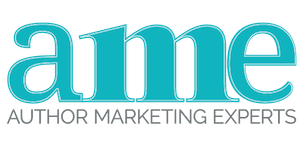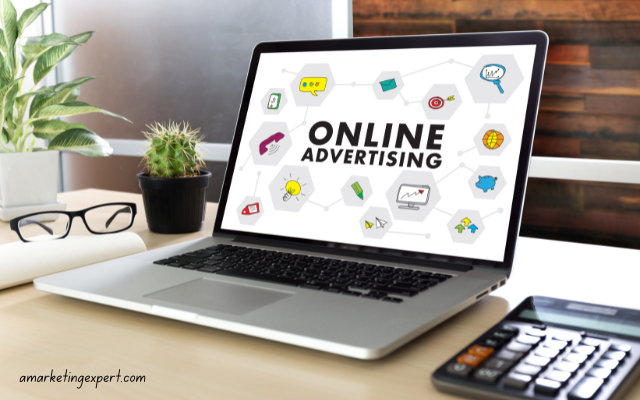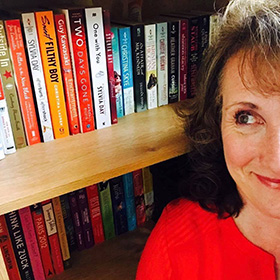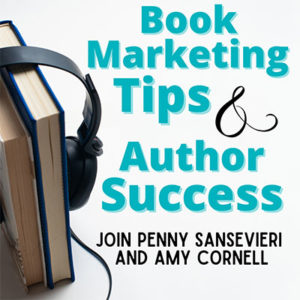For a lot of authors, running ads feels like a solid book marketing plan. Let the ad do the work, yes? In theory that sounds like a good idea. But does it sell books?
This is where it gets tricky. If you’re figuring out how to advertise a book remember: ads don’t always mean sales. And if you’re not careful, you could spend your entire marketing budget and have very little to show for it. If you’ve ever listened to our podcast, you already know I’m not a fan of running ads just to run ads. If you’re opting to do social media ads because you’ve heard other authors are successful at it, consider your goals first, and be strategic.
Social Media Advertising
While a lot of authors default to Facebook for ads, I’m going to put all of the social media portals under one umbrella for this post. The reason is, the same rules apply across the board. Let’s dig in.
The first rule of any good ad is to create urgency. Is there a limited-time deal or offer to entice folks to click? Rarely will someone click because of your cover, no matter how compelling it might be.
The next part of this is your reader demographic, and this is where authors often overestimate the reach of their books, which can cost them money. So be extremely specific, even if it means starting with a smaller demographic group and widening it as you start to see results.
The next is, of course, measuring the success of the ad itself. I often caution authors on this point in particular because it’s one thing to get high ad numbers, but quite another for it to sell some books.
So let’s say that your Facebook ads are doing great and you’re sending a ton of traffic to your Amazon book page, but for some reason, your sales are lagging. You’ve made maybe a handful of sales, but nothing very significant. This is a red flag that there could be something wrong with your Amazon page.
Yes, there could also be a problem with your ad copy, your book cover, or the demographics you’ve selected. But if all of these check out, it’s time to fix your Amazon retail page because that’s likely the culprit. Lucky for you, I’ve written a ton of blogs on your Amazon book page, and my latest book: The Amazon Author Formula has an entire chapter dedicated to this.
Amazon Advertising
For many authors, Amazon options can seem daunting when trying to figure out how to advertise a book. It feels complex and confusing but it’s a great way to get in front of more readers, boost your visibility on Amazon, and boost your overall Amazon optimization.
Here are a few things to be cautious of:
Specific Targeting Matters. Much like social media advertising, your demographic matters. Make sure you’re targeting the absolute correct readers. By this I mean don’t overshoot your market. If you wrote a cozy mystery, for example, make sure you aren’t targeting general mystery because these aren’t your readers. In another example, if your book is political suspense, you don’t want to waste your time and money targeting domestic thriller readers, or suspense with science fiction elements, those are not your people.
If you have a non-fiction book, there’s a specific market for you as well. Did you write a book on starting your own business for newbies? Great. Then be sure and only target those readers, and stay away from the more advanced business strategy books.
You get the idea here, right? Your targeting matters.
Make good use of negative keywords. When learning how to advertise a book on Amazon I find authors don’t make great use of negative keywords, and the reason that this matters is because you need to direct Amazon on where not to show your book. For example, you don’t want your book to show up if a reader is looking for Kindle freebies. So add “free ebook” to your negative targeting. By the same token, you can also add book topics that don’t align with your book, or even authors and book titles. It’s a good practice to get into and I recommend doing it each week when you get in to check your ads.
Portfolios. I love creating ad portfolios and setting a budget cap on these. That way I don’t have to worry about overspending in any particular month.
Bookbub Advertising
While Bookbub Featured Deals are great, they are often hard to get and, in many cases, pretty pricey. And if you’ve never checked out BookBub advertising, you really should. What is Bookbub advertising? It’s those ads at the bottom of each Featured Deal newsletter you get and they’re surprisingly inexpensive to run. With a budget of only $50, you can get a lot of quality impressions (depending of course on the demographic and numbers you’re trying to target.).
But if you have your heart set on getting a Featured Deal, consider doing one internationally if there’s a market for your book in other countries. They’re often cheaper and easier to get!
Google Adwords
I’ve had authors ask me if Google AdWords makes sense for their book. The short answer is no, it really doesn’t. Why? Because not everyone searching your keywords is looking for a book. And Google ads are insanely expensive and it’s easy to blow through your budget for little to no return. These kinds of ads are also tricky to run, so if you’re going to do this keep your daily spend low until you get a feel for how the ads platform works.
Figuring out how to advertise your book through strategically placed ads could greatly enhance other marketing you may be doing – but it’s not a stand-alone marketing strategy.
Ads, on their own, do little to get your book talked about and we know that 95% of books are sold word-of-mouth so including ads as a strategy that supports other work you’re doing is smart. We all need to rack up tons of quality impressions before we start to see sales, and ads can help with that, but they’re not psychologically engaging enough to do all the work required.
So long as the ads aren’t draining your budget, or preventing you from taking advantage of a variety of other book marketing strategies, advertising is a great way to raise awareness with your readers and a great way to promote a limited-time offer or new book release!
Resources and Free Downloads
Download our free monthly book marketing planner.
Download our free Reader Profile Brainstorm.
Check out our podcast on decoding publishing industry jargon.
Exploring the pros and cons of self-publishing.
8 things book promotion companies want you to understand.
Creating a stronger and more consistent author brand.
A helpful list of book awards and contests.
Check out all the episodes of our book promotion podcast anywhere you listen to podcasts!
Be sure to sign up for our newsletter on the right-hand side of our blog homepage. If you haven’t opened a recent one your registration may have lapsed.
Follow us on Instagram for book marketing tips and some much-needed levity!




I look forward to your advise to get my MG novel advertised more widely.